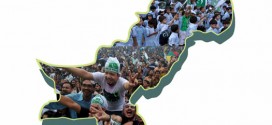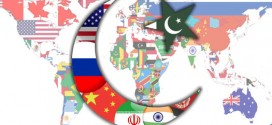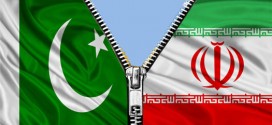On September 28, the Organization of Petroleum Exporting Countries (OPEC), during its meeting in Algiers, the Algerian capital, agreed to reduce oil output to a range of 32.5-33.0 million barrels per day from the current output of 33.24 million bpd. It is for the first time in eight years that the oil cartel has decided to lower output. Saudi Arabia, …
Read More »The Future of Afghan Unity Government , Things are falling apart
It seems that Afghanistan’s problems aren’t going to end anytime soon. At a time, when the country is slowly yet steadily slipping into the hands of Taliban and the influence of already fragile Unity Government is waning, the top political leadership of the country has resorted to political wrangling. The cleavages in the unity government became more than evident when …
Read More »Understanding the South China Sea Verdict
On July 12, International Tribunal for the Law of the Sea (ITLOS) in The Hague ruled that China’s sovereignty claims over the South China Sea, and its aggressive attempts to enforce them, violate international law. It is a decision that comes with no enforcement measures, so its effect will depend on how China’s neighbours and the United States respond. China …
Read More »Putting Agriculture Back on Track, Strengthening the Backbone of Pakistan
“We can’t afford a setback to the agriculture sector and will take collective measures. It’’ a very big challenge for us.” Muhammad Ishaq Dar (Federal Minister for Finance) Agriculture sector plays a vital role in Pakistan’s economy. It provides the raw materials to down-the-line industries and also helps in poverty alleviation. Traditionally, this sector has been performing well but in …
Read More »The Importance of National Census | Why Head Count is Direly Needed in Pakistan?
The Council of Common Interests (CCI) recently decided to put off national census for an indefinite period while decided to work out modalities and availability of servicemen for the nose count. It is important to note here that census is a periodic activity and it must be conducted regularly, and should never be missed out on. Conducted at regular intervals, …
Read More »Bringing Peace to Afghanistan | Introducing the 6+1 Peace Formula
It was almost certain that the stage was set for face-to-face talks between the Taliban and the Afghan government within the framework of the Quadrilateral Coordination Group, which consists of US, China, Pakistan and Afghanistan. Positive signals to that effect had been received by the concerned quarters in Pakistan and by the governments of the other members of the QCG. …
Read More »How Pakistan Fared in 2015
The support for the Operation Zarb-e-Azb, spanning all political parties as well as the general public, with the objective of militarily dealing with terrorists continued successfully in 2015 with a visible decline in the number of terror attacks in the country. The heinous attack on Army Public School on 16th December 2014 continued to galvanize the nation in support of …
Read More »Pakistan’s Foreign Policy in the 21st Century
Since the emergence of the country on the world map in 1947, the foreign policy of Pakistan has been facing grave challenges. But, the challenges in the 21st century are far more serious and daunting in nature. The challenges like globalization, extremism, terrorism and economic decline have impeded the effectiveness of the foreign policy of Pakistan. Today, the world community …
Read More »Climate Change & National Security
Climate change presents a grave threat to the security and prosperity of almost all countries across the globe. Pakistan, which ranks tenth in 2014 global index of fragile states, is also no exception to it. This phenomenon is turning out to be the most fundamental of all non-traditional security threats for Pakistan. These threats arise primarily out of non-military sources, …
Read More »Iran-Pakistan Relations: Iran’s opening to the outside world and Pakistan
Iranian Foreign Minister Javad Zarif visited Pakistan recently, as part of a multi-country tour to explore opportunities for greater economic and security cooperation in the region following the landmark nuclear deal with the P5+1. Addressing a joint press conference during his day-long visit to Pakistan, he said that Iran intends to expand economic cooperation with Pakistan, along with increasing regional …
Read More » Jahangir's World Times First Comprehensive Magazine for students/teachers of competitive exams and general readers as well.
Jahangir's World Times First Comprehensive Magazine for students/teachers of competitive exams and general readers as well.









